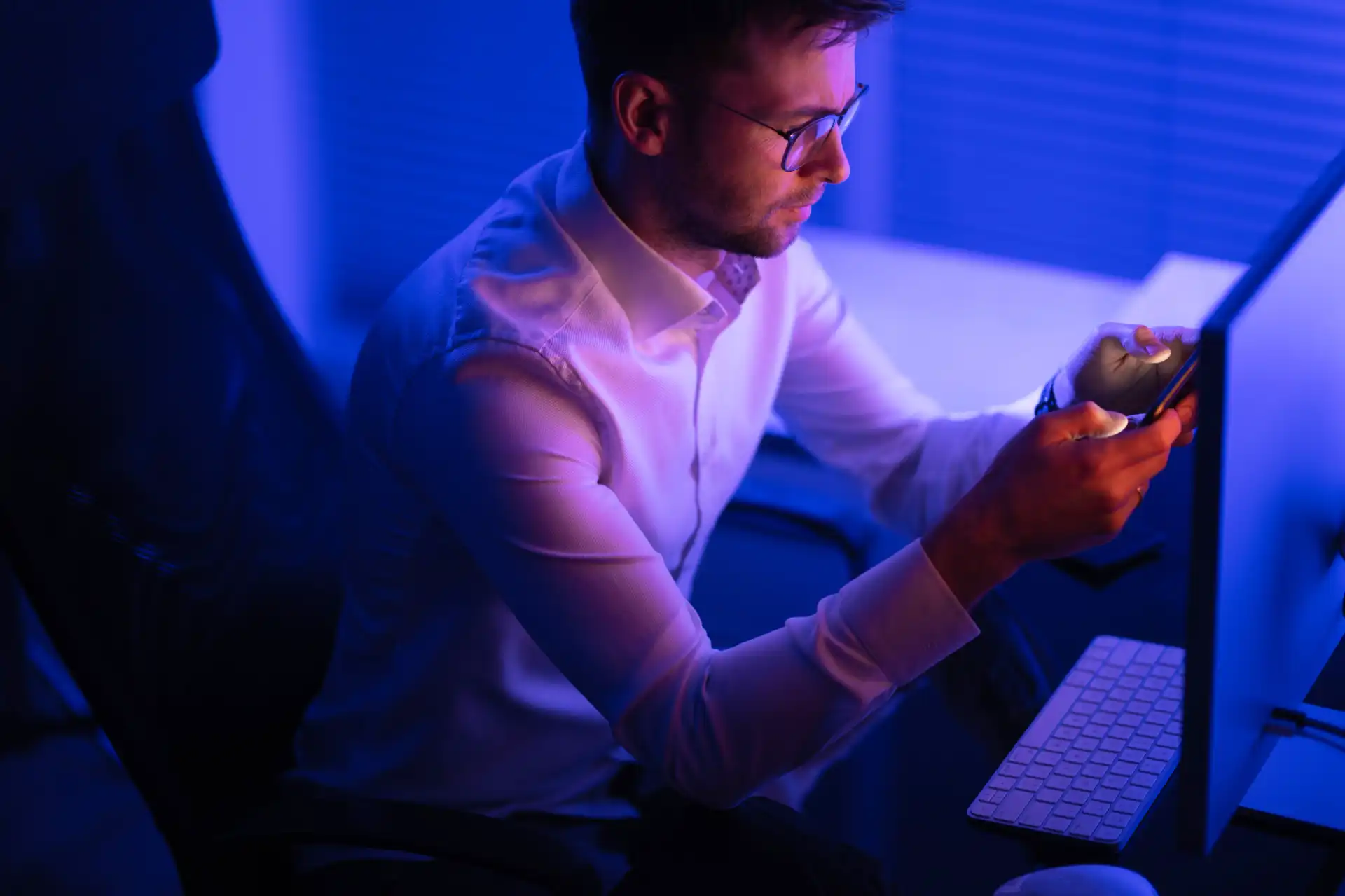The Impact of Blue Light on Eye Health: Myths and Facts
In today’s tech-driven world, we spend more time than ever staring at screens — from phones and tablets to laptops and TVs. This increased screen time has raised concerns about blue light and eye health. Is blue light really harmful to your vision? Do you need special glasses to protect your eyes? Or is the fear overblown?
Let’s separate the myths from the facts about blue light, so you can make informed decisions about protecting your vision and overall eye health.
What Is Blue Light?
Blue light is part of the visible light spectrum, with wavelengths between 400 and 500 nanometers. It’s a high-energy, short-wavelength light that’s naturally emitted by the sun. But artificial sources — like LED lighting, computer monitors, and smartphones — also emit blue light.
While blue light helps regulate your sleep-wake cycle and mood, too much exposure — especially at night — may affect more than just your sleep.
Myth #1: Blue Light from Screens Permanently Damages Your Eyes
Fact: According to the American Academy of Ophthalmology (AAO), there’s currently no scientific evidence that the blue light from digital screens causes permanent eye damage or blindness.
However, prolonged screen use can lead to digital eye strain — a temporary condition that causes symptoms like dry eyes, headaches, and blurry vision. These issues result from focusing for long periods, not blue light damage itself.
Myth #2: Blue Light Glasses Prevent All Eye Problems
Fact: Blue light-blocking glasses are popular, but studies remain inconclusive about their effectiveness in reducing eye strain. While they may help some people feel more comfortable, they’re not a cure-all.
Instead of relying solely on glasses, try the 20-20-20 rule: every 20 minutes, look at something 20 feet away for 20 seconds. This reduces visual fatigue and supports healthier screen habits.
Myth #3: Blue Light Only Affects Your Eyes
Fact: Blue light also affects your sleep patterns. Exposure to screens before bedtime can suppress melatonin production and disrupt your circadian rhythm. According to Harvard Health, this can make it harder to fall and stay asleep.
To minimize disruption, avoid screens 1–2 hours before bed or use night mode features that reduce blue light emission.
Can Blue Light Exposure Be a Problem for Children?
Yes. Children’s eyes absorb more blue light than adult eyes because their lenses are still developing. Increased screen time in kids can lead to eye strain and may impact sleep and concentration. Encourage outdoor play and set screen time limits to support eye development.
How to Protect Your Eyes from Blue Light
While blue light may not cause permanent damage, reducing exposure can help prevent discomfort and improve your sleep. Here are a few practical tips:
- Use the 20-20-20 rule: Give your eyes a break from screens every 20 minutes.
- Enable night mode: Most devices have built-in settings to reduce blue light in the evening.
- Adjust screen brightness: Lower the brightness to match your environment.
- Use artificial tears: Help combat dryness caused by prolonged screen use.
- Visit your eye doctor: Schedule routine exams to monitor your eye health and vision changes.
Parents should also monitor children’s screen time and encourage regular outdoor activity, which research shows supports healthy eye development and may reduce the risk of myopia.
When to Talk to an Eye Care Professional
If you experience persistent eye strain, blurry vision, headaches, or dry eyes, consult an optometrist. These symptoms may indicate digital eye strain or another underlying condition. Your doctor can recommend personalized solutions, including lenses or eye drops, and rule out any serious issues.
For more information, visit the CDC’s page on blue light and sleep.
Final Thoughts
Blue light and eye health are hot topics for good reason — but not all claims are backed by science. While blue light isn’t likely to cause long-term eye damage, it can contribute to discomfort and disrupted sleep patterns. The best defense is healthy screen habits, regular breaks, and routine eye exams.
If you’re concerned about your screen time or eye strain, schedule an eye exam with BridgeMill Eye Care. Our team is here to help protect your vision and comfort in today’s digital world.





